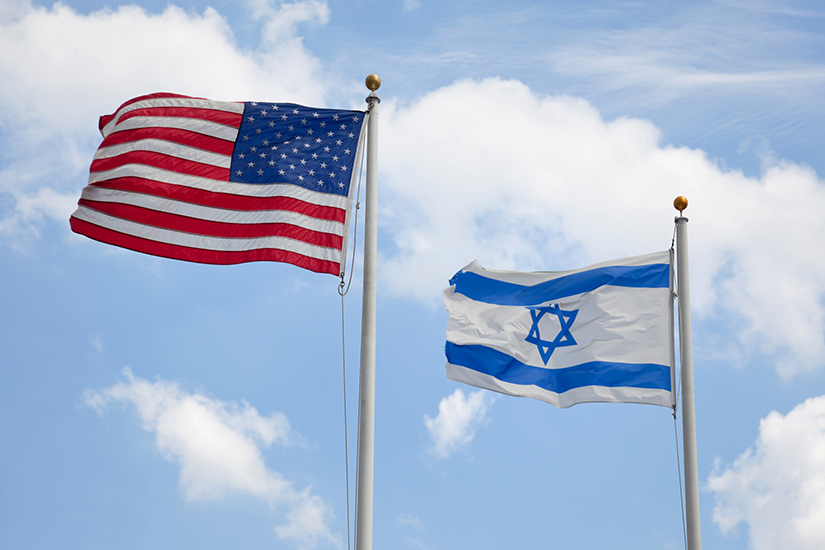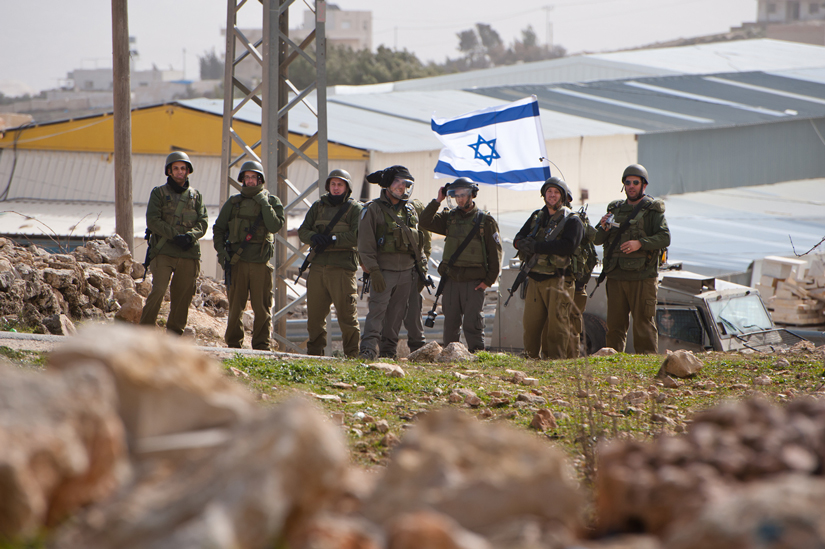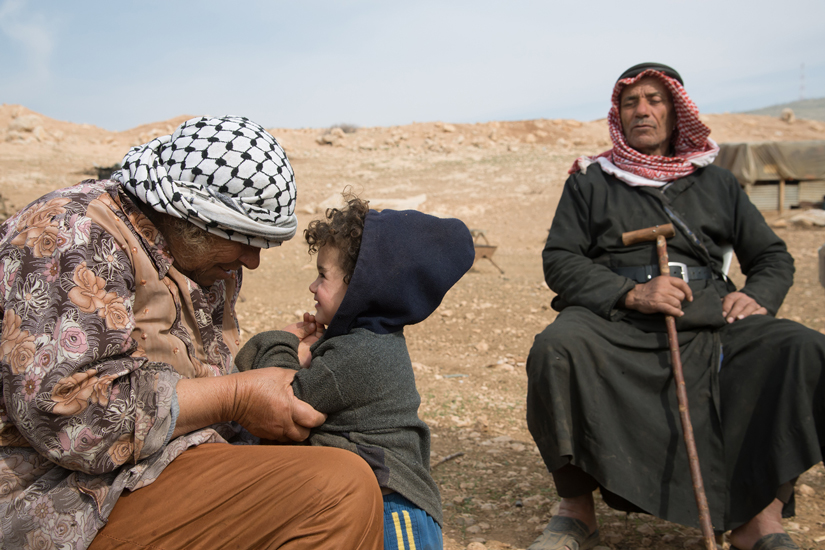Introduction
Looking at the developments in the Middle East situation after Donald Trump's victory in the United States presidential election and the recently announced lineup of Middle East policymakers in his administration, the Middle East situation is expected to move in Israel's favor going forward, so it appears that we will reach a situation which is best described as Israeli "dominance." Given this understanding of the situation, it is surely necessary for the international community, including Japan, to consider what it can do.
Therefore, in this paper, this author will start by giving an overview of the recent Middle East situation. What can be deduced from the current situation in Gaza, Lebanon, Syria, Iran, among others, is that Israel is in an environment enabling it to proceed with establishing settlements in the West Bank and annexing those settlements into its national territory. Next, this author will make predictions about the Middle East policies of the second Trump administration based on the personnel changes which have been announced. Judging from the lineup for the Ambassador to Israel, the Special Envoy to the Middle East, the Senior Advisor on the Middle East, and so forth, it seems unlikely that the United States will stand in the way of Israel's settlements policy. Therefore, taking into account this Middle East situation and the predicted policies of the United States, what kind of stance is required of the international community? This author will think about this point at the end of this paper.

The Middle East situation is moving in Israel's favor
Since the attack by Hamas on October 7, 2023, Israel has been fighting against Hamas in Gaza, as well as forces which do not recognize the state of Israel such as Hezbollah in Lebanon, Iran, and the Houthis in Yemen, all of whom say they are acting in solidarity with Hamas. From Israel's perspective, in order to ensure the peace and security of its country and its people, it is necessary to annihilate Hamas and Hezbollah, or at least eliminate their fighting capabilities, and deal a blow to the anti-Israel encirclement by Iran and forces under its influence and to Iran's nuclear capabilities.
Israel annihilated five Hamas brigades in Gaza and killed the supreme leader of Hamas, Ismail Haniyeh, and his successor, military leader Yahya Sinwar. Furthermore, with respect to Hezbollah in Lebanon, Israel killed many Hezbollah leaders at the end of September 2024, struck its missile attack capabilities, and carried out a ground invasion to wipe out its troops and military facilities near the border with Israel on the Lebanese side.[1] Then on November 26 the same year a ceasefire agreement was concluded between Israel and Lebanon through the mediation of the United States and France. Through the annihilation of the military forces of Hamas and Hezbollah, Israel has eliminated a threat to the peace and security of its country and its people.
Furthermore, the crisis facing Hezbollah in Lebanon brought about the return to Lebanon of Hezbollah forces stationed in Syria, weakening the Bashar al-Assad regime in Syria. Moreover, the collapse of the Assad regime in Syria on December 7,[2] led to the destruction of the bases of Hezbollah and the Iranian Revolutionary Guards fighting against Israel and is thought to have significantly reduced the influence of Russia, which had been supporting that regime.
From the perspective of Israel, all of the threats surrounding it in the neighboring regions to the north, northeast, and south have disappeared. It concluded an intergovernmental ceasefire agreement with Lebanon to the north and the agreement excluded Hezbollah, a non-state military organization fighting Israel. In Gaza to the south as well, it is thought that it will be possible to implement a ceasefire in a form advantageous to Israel without engaging in negotiations with Hamas. A report from the BBC dated December 21 stated that the Gaza ceasefire negotiations were 90% complete and the remaining issue was related to the presence of the Israeli military, but the Palestine side had seemingly accepted the presence itself.[3] President-elect Trump stated that if Hamas did not release all of the hostages before his presidential inauguration, "all hell is going to break out,"[4] so it would not be surprising if a ceasefire is concluded immediately after he takes office.

The remaining threats are the Shia militants in Iran and Iraq and the Houthis in Yemen, all of whom do not recognize Israel as a state and are willing to engage in armed attacks, but these countries and forces are far away, so it is not necessary for Israel to respond to their attacks, for example, by evacuating its own citizens, and it can carry out sufficient counterattacks. Actually, despite the strikes by Israel on Houthi missile bases and other facilities, the Houthis are continuing their attacks targeting Israeli soil, but their missiles are apparently being shot down outside Israeli territory.[5] As can be seen inside Iran from the assassinations of nuclear scientists and the killing of Haniyeh, the supreme leader of Hamas, and others, Israel continues to maintain espionage capabilities inside Iran, and it is thought that Israel will constantly keep an eye on the threat from Iran and use its espionage capabilities whenever this is necessary from the perspective of its security.
Türkiye is a major power in the Middle East and is also militarily strong. However, it is unthinkable that it would start an armed conflict with Israel, even though it is sharply opposed to Israel's occupation of and policies with respect to the West Bank and Gaza. It is not a country that will threaten the "dominance" of Israel in the sense of Israel being able to carry out military actions in the Middle East freely.
Regarding the gulf oil-producing countries, the United Arab Emirates and Bahrain have already established diplomatic relations with Israel, and given their opposition to Iran they are not likely to go out of their way to raise any objections to Israel, on the basis that the enemy of their enemy is their friend. It is likely that their diplomatic relations with Israel will run hot and cold, as seen in the cases of Egypt and Jordan, but they will do no more than declare their opinions about the human rights of Palestinians and the establishment of the State of Palestine. As for Saudi Arabia, the king styles himself as the Custodian of the Two Holy Mosques; therefore, he cannot accept the current Middle East policies of Israel, so the country is unlikely to establish diplomatic relations with Israel. However, the possibility cannot be denied of substantial progress in exchanges between the two countries.
Given this situation, Israel is likely to continue its operations for the release of the hostages taken by Hamas, while the humanitarian crisis facing the Palestinians in Gaza seems set to persist. Furthermore, the establishment of Israeli settlements in the West Bank and the annexation of those settlements into Israel are also expected to proceed further.
The Middle East policies of the incoming Trump administration (centered on personnel changes) are expected to work in Israel's favor
The attack on Israel by Hamas on October 7, 2023 led to the idea on the Israeli side that in the end Israel's security could not be achieved without exchanging territory for peace, and from the end of 2023 to the first half of 2024 there was hope that a two-state solution would be pursued, with the peaceful establishment of two states, the state of Israel and an Arab state, in the area of the former British Mandate for Palestine. However, in light of the situation discussed above, it is thought that Israel will advance the establishment of settlements in the West Bank and annexation of the settlements into its national territory without changing its position. The Middle East policies of the incoming Trump administration seem likely to work in the favor of Israel as it takes this approach.
An article in The Economist dated November 7 stated that the Middle East policies of President-elect Trump will probably depend on who gives him advice. He has made a succession of announcements about who those people will be. Mike Huckabee, former Governor of Arkansas, was nominated as Ambassador to Israel; Steven Witkoff, a businessman close to the incoming president, as Special Envoy to the Middle East; and Massad Boulos as Senior Advisor on the Middle East.[6]
Upon his nomination, Huckabee stated that "I will carry out the policy of the president" while also mentioning that the first Trump administration moved the US embassy in Israel to Jerusalem and recognized the Golan Heights currently under Israeli occupation as Israeli territory.[7] Furthermore, in his past statements, he has consistently supported Israel's annexation of the West Bank settlements.[8] Israelis call the West Bank region "Judea and Samaria" and consider it to be land which was given to their ancestors by God, and Huckabee shares this belief.[9] Furthermore, behind Huckabee are Christian fundamentalists and evangelical Christians, who form the core of President-elect Trump's support base, and they will likely support the policies of the incoming Trump administration, which is expected to support Israel's settlements policy. The right wing of Israeli politics has welcomed the nomination of Huckabee as US ambassador to Israel, and the possibility of these two parties joining forces to advance the establishment of settlements in the West Bank region is increasing.
Witkoff's knowledge about the Middle East is an unknown quantity, but he has already held talks with Prime Minister Benjamin Netanyahu of Israel and Prime Minister Sheikh Mohammed of Qatar, and Prime Minister Sheikh Mohammed revealed that they were holding consultations regarding a ceasefire in Gaza.[10]
During the presidential election period, Boulos stated that he was a friend of Suleiman Frangieh, a Christian leader in Lebanon, and that Frangieh has formed an alliance with Hezbollah.[11] It cannot be predicted how Boulos will take advantage of this, but there is no doubt that he has connections with Lebanese Christians and it can be inferred that he is able to contact Hezbollah and Iran through Frangieh. On the other hand, it is impossible to think that he would put his body on the line to state an opinion about the policies of the Trump administration regarding the Palestinian issue.
In light of the above, it is thought that the United States will boost the policies of Israel or at least accept and support them. One more condition for the two-state solution to make progress is the support and assistance of the United States and the moderate Arab countries, but given that the support of the United States cannot be expected, the moderate Arab countries will not be able to actively play a role either. In the end, the likelihood of moving further away from the path toward a two-state solution will only grow.
The stance that the international community and Japan should adopt
Now let's look at the situation going forward from the perspective of Palestine and the countries surrounding Israel, anticipated based on the predicted Middle East policies of the United States and a situation of Israeli "dominance" in the Middle East region.
According to the United Nations Office for the Coordination of Humanitarian Affairs (OCHA), 45,388 Palestinians have been killed since October 7, 2023 and there are 1.9 million displaced persons in Gaza.[12] The strip has seen deliveries of United Nations (UN) humanitarian aid supplies mostly denied by Israel (from December 1 to December 24: 48 of 52 attempted deliveries were denied by Israel), so extreme food shortages are being seen, and attacks by Israel on Gaza from the air, sea and land are going on.[13] In addition, Israel passed a domestic law forcing the United Nations Relief and Works Agency for Palestine Refugees in the Near East (UNRWA) to stop its activities.[14] Furthermore, in the West Bank, armed and unarmed resistance by Palestinians against Israel continued and 20 Palestinians were killed in attacks by Israel, including 12 airstrikes, in the ten days from December 17 to December 26.[15] The infrastructure of the refugee camp in Tulkarm in the northwest of the West Bank (established due to the First Arab–Israeli War in 1948) was also extensively damaged.[16]

Turning our eyes to the north, the southern region of Lebanon adjacent to Israel's northern border has been kept calm by agreement between the two countries, but Israel has bombed Syrian military sites from the air and is advancing its forces into buffer zones such as Quneitra in Syria, adjacent to the Golan Heights, an area which Israel occupied in the 1967 Third Arab–Israeli War (the Six-Day War) and later annexed.
In summary, the humanitarian crisis in Gaza and the West Bank area continues, and the area occupied by Israel is increasing, a situation that is expected to persist even after the start of the incoming Trump administration. The international community should take action based on this situation.
With respect to the humanitarian crisis, the international community should cooperate to urge Israel to ensure that international organizations can deliver aid supplies. This will be difficult with respect to the activities of UNRWA because the Government of Israel has banned cooperation with UNRWA under Israeli domestic law, but it should be possible with respect to the activities of UN humanitarian aid agencies such as UNHCR, UNICEF, and WFP, as well as the International Committee of the Red Cross (ICRC). Therefore, Security Council resolutions and other measures should be adopted and implemented to maximize the achievement of humanitarian aid objectives.
In 1967 Security Council Resolution 242, which was adopted in the aftermath of the Third Arab–Israeli War, guaranteed Israel's right to exist, but also called on Israel to withdraw from the land it occupied in that war. The resolution was binding and obliged UN member states to call on Israel to implement the withdrawal. The international community, including Japan, should not compromise on this point, regardless of what Middle East policies the United States adopts. The international community should remind people of the intent of Security Council Resolution 242 at appropriate venues such as the G7 and G20, while making the case at a variety of settings, including the UN General Assembly and relevant private forums, that the policy of establishing settlements on the West Bank is a violation of international law.
As this author stated in his paper published in September 2024, the contributions that Japan should make are, firstly, to create an environment for peace that will underpin negotiations, and secondly, to make sound arguments based on international law.[17]
It is desirable for Japan to continue providing socioeconomic support, for example the creation of the corridor for peace starting from the Jericho Agro-Industrial Park, and to take a series of measures contributing to confidence-building between Israel and Palestine (and the Arabs). The Government of Japan should closely monitor Israel's actions and take measures if those actions violate international law, as it did in July 2024 when it condemned the establishment of settlements by Israel and imposed sanctions on the settlers. Furthermore, it should support efforts contributing to confidence-building in the private sector.
That being said, once the incoming Trump administration takes office, it will not be easy to create unity in the G7 on the Palestinian issue. On the contrary, it will be difficult. Going forward, it will be desirable for the international community, including Japan, to use its wisdom and ingenuity to take action based on this premise.
(2025/02/13)
Notes
- 1 "Israel Approves Cease-Fire With Lebanon Aimed at Ending Hezbollah Conflict," The Wall Street Journal, November 26, 2024.
- 2 Summer Said, "Where Is Ousted Syrian President Bashar al-Assad?"The Wall Street Journal, December 8, 2024.
- 3 Gaza ceasefire talks 90% complete, Palestinian official tells BBC", BBC, December 22, 2024.
- 4 Patsy Widakuswara, "Trump wants to quickly end Gaza war — can he?," VOA, December 20, 2024.
- 5 "Houthis Launch Latest Missile at Israel Amid Warnings of Retaliation," The New York Times, December 31, 2024.
- 6 "Will Donald Trump "stop the wars" in the Middle East?" The Economist, November 7, 2024.
- 7 "Trump's Pick of Huckabee and Witkoff a Clue to Middle East Policy," BBC News Japan, November 15, 2024.
- 8 Ibid.
- 9 Ibid.
- 10 "Qatar Consults with the Incoming Trump Administration in the United States Regarding a Ceasefire in Gaza," Nihon Keizai Shimbun, December 8, 2024.
- 11 Nadine Yousif, "Trump picks in-law Massad Boulos for key adviser role," BBC, December 2, 2024.
- 12 "Reported Impact Since 7 October 2023,"OCHA, Accessed in December 31, 2024.
- 13 "Humanitarian Situation Update #249, Gaza Strip," OCHA, December 24, 2024.
- 14 "Israeli laws blocking UNRWA – devastating humanitarian impact for Palestinians?" UN NEWS, October 31,2024.
- 15 "Humanitarian Situation Update #250, West Bank," OCHA, December 26,2024.
- 16 Ibid.
- 17 "Ceasefire Negotiations Between Israel and Hamas Stall ― What Should the International Community Do to Realize the ‘Two-State Solution'?," International Information Network Analysis (IINA), September 25, 2024.

